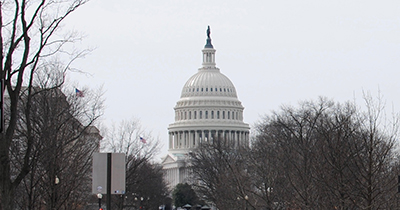By Greg Siskind
Whether the coronavirus is largely under control by the time this article reaches you or not, the pandemic has exposed a problem that has been apparent for many years to health care experts – the US faces a shortage of doctors and the problem is getting worse. The Association of American Medical Colleges recently forecast that the gap in the physician supply will grow to 122,000 in just over a decade. If you live in a rural area, you are the canary in the coal mine, and this is already a severe problem. The rest of America will be in the same boat soon enough.
Doctors who earn their medical degrees abroad but receive their post-graduation medical training in the US at American teaching hospitals are referred to as International Medical Graduates (“IMGs”). They constitute about ¼ of the doctors training in America and they have a critical role to play in the US health care system. This amounts to about 4,000 doctors per year who come on visas to train. American medical school graduates nearly all find residency slots and make up the other three-fourths of doctors in training. In internal medicine IMGs are 39% of those doctors in training. And for psychiatrists who are playing an outsized role in the opioid crisis, IMGs are more than 50% of physicians coming out of training programs.
The proportion of international doctors in the US physician population has remained fairly steady for more than 60 years. Unfortunately, our broken immigration system is now pushing many IMGs to leave the US when their training is finished.
The visa doctors use to train is called the J-1 and doctors in residency and fellowship programs are typically here for three to seven years in that category. Once they finish, they are required to leave the US. But they can stay if they get a waiver sponsored by a state health agency or a federal agency (e.g. the Delta Regional Authority) based on service in a federally designated physician shortage area. The state health agencies sponsor what are called Conrad 30 waivers (named after former Senator Kent Conrad of North Dakota) and there is a limit of 30 doctors per state. The federal programs have very restrictive requirements so most of the waivers granted are done through the Conrad 30 program.
30 doctors per state is woefully inadequate to meet the need and it’s also unfair that a state as big as California gets the same number of doctors as Delaware. The physician immigration system is rife with other technical problems that also make life hard for doctors.
And then there is a problem that usually strikes people as insane – more than a quarter of the IMGs wait on green card lines of twenty years or longer. That’s because they are from India and our immigration system has green card quotas that allow no more than 7% of any particular green card category to go to nationals of any particular country. India has many of the world’s best medical schools so this is not so surprising.
The wait times for Indian doctors have more than doubled in recent years and doctors and countries like Canada, Australia and the UK are actively taking advantage of the situation by recruiting these doctors.
Congress is actively considering legislation that could address much of this problem. HR 2895, sponsored in the House of Representatives by Brad Schneider (D-IL) and S. 948, sponsored by Senator Amy Klobuchar (D-MN), both have a lot of bipartisan support and few identified opponents. But general immigration politics seem to prevent bills like this from moving. Some are optimistic that the COVID-19 crisis may have moved the needle and we could see these bills move forward.
The bills would expand the number of J-1 waivers for doctors and address many of the technical issues that slow down physician visa processing and address many of the technical problems hampering the administration of the physician immigration system. And it gets at the green card problem for Indian physicians by removing green card caps for those doctors who work for at least five years in a physician shortage area.
Congress hasn’t passed an immigration bill of substance in nearly 15 years. Perhaps the pandemic will have shaken things up enough that the doctors may finally be the one group that can get things back on track.

Greg Siskind
Siskind Susser PC
Immigration Lawyers
gsiskind@visalaw.com
www.visalaw.com
